Minneapolis Jewish Mayor at Center of Crisis
New AA Synagogue Rabbi is from Minneapolis and was asked if he was surprised by witnessing his city as it exploded in rioting and violent protests over the death of George Floyd.
On May 23 Sam Blustin sat in front of his computer monitor at home in Minneapolis to participate in the virtual graduation ceremonies of the Jewish Theological Seminary in New York and to be ordained a rabbi in the Conservative branch of Judaism.
Just three days later the new Rabbi Blustin watched the same computer monitor as the city where he grew up and first decided to become a religious leader exploded in rioting and violent protests over the death of George Floyd, an African American.
Blustin, who will become the new associate rabbi at Ahavath Achim Synagogue in Atlanta later this month, was asked if he was surprised by what he saw.
“I think in many ways, ‘no.’ There’s a lot of frustration in general, economically, and add to that the situation that minority communities have been hit particularly hard by COVID. … There are a lot of people who are sick and tired of young people dying for no reason.”
Seventy-five years ago when Jews first began moving to the Minneapolis suburb of St. Louis Park where Blustin grew up, they were the ones protesting injustice. An article at the time in Common Ground magazine, written by Carey McWilliams said that “Minneapolis is the capitol of anti-Semitism in the United States.”
McWilliams who later become the long-time editor of The Nation went on to say that in almost every way, “an iron curtain separates Jews from non-Jews in Minneapolis.”
Many neighborhoods were restricted. The Rotary, Lions and Kiwanis clubs barred Jews and local resort hotels accepted “Gentiles only.” Jewish doctors, who had long suffered from discrimination, finally built their own hospital, Mount Sinai, in 1948 to obtain medical privileges.
Ironically, today, the mayor of Minneapolis, who has had to answer charges of racism and discrimination in the city, is a 38-year-old Jewish attorney.
Jacob Frey, who attends two Reform synagogues in Minneapolis, was elected three years ago. Before the rioting, he was generally considered a popular leader, with good looks and charisma, a description that he told the Jewish Telegraphic Agency news service that he appreciates as a Jew.
“In seriousness, traditionally Jewish males are stereotyped through Nazi propaganda to be ugly and weak. And if nothing else, I think it’s good when media and the community rejects that notion.”
Although he grew up in a secular Jewish home, he told the JTA that, as a politician he is inspired by Jewish values.
“The moral imperative outlined by tikkun olam,” he said, referring to the Hebrew for repairing the world, “is something I believe in strongly and is foundational both to Judaism but also my philosophy in government.”
On May 27 Frey said he supported the firing of four police officers who were accused of killing Floyd by restraining him and ignoring his complaints that he could not breathe.
“Being black in America should not be a death sentence. For five minutes we watched as a white police officer pressed his knee into the neck of a black man. For five minutes. When you hear someone calling for help, you are supposed to help”
The police officer, Derek Chauvin, was charged initially with third-degree murder and manslaughter. On Wednesday, June 3 the charges were increased to second-degree murder and three other officers who were involved were charged with aiding and abetting second-degree murder.
The alleged killing has led to protests and violence across the nation and charges that Mayor Frey was slow to act when looting and arson began in the city.
On Tuesday, June 2, first estimates of the damages described the losses as totaling at least $55 million dollars. Mayor Frey indicated the city would need state and federal aid to reconstruct the hundreds of buildings that have been damaged or destroyed.
It’s unclear whether Frey, whose response to the rioting was described as “weak” by President Donald Trump, will get any direct federal assistance.
For Blustin, there’s an even bigger issue than rebuilding physical structures; it’s rebuilding relationships between the races.
With the knowledge he’s gained in Minneapolis in the past several weeks, he says he’s eager to continue to work toward better understanding when he takes over his new role this month at Atlanta’s AA synagogue.
“One of the things that I hope to do when I get to Atlanta is to meet with different faith leaders of different backgrounds to try to build coalitions in which we can actually make some change towards equality in a deeper way. We need to bring communities together to hear each other’s stories and to really see each other and try to lift each other up.”



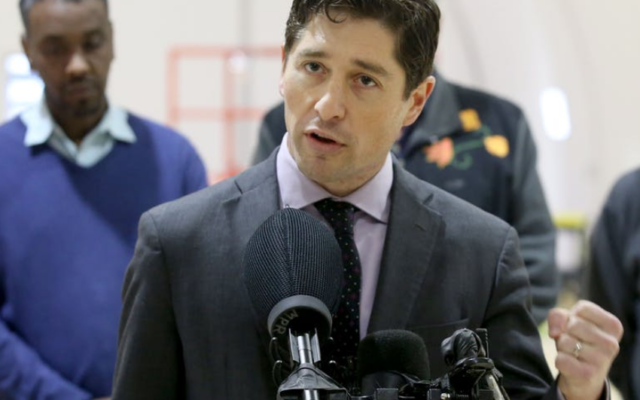
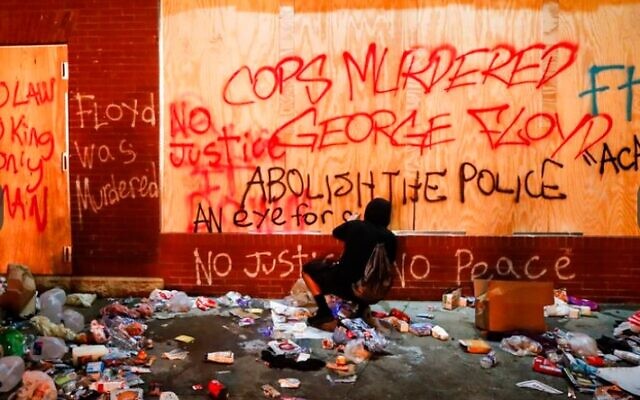
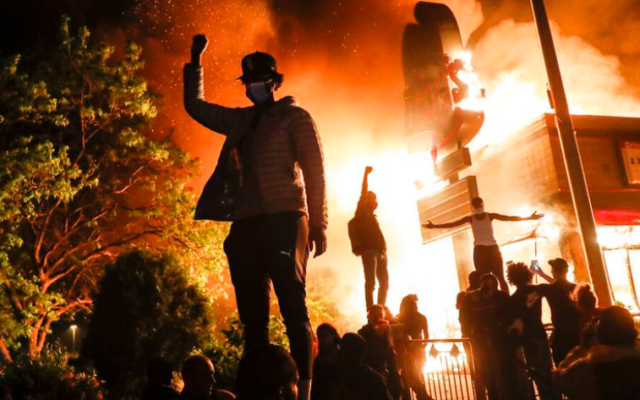
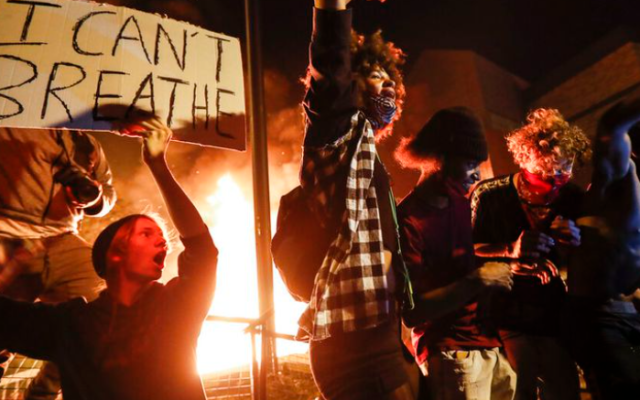
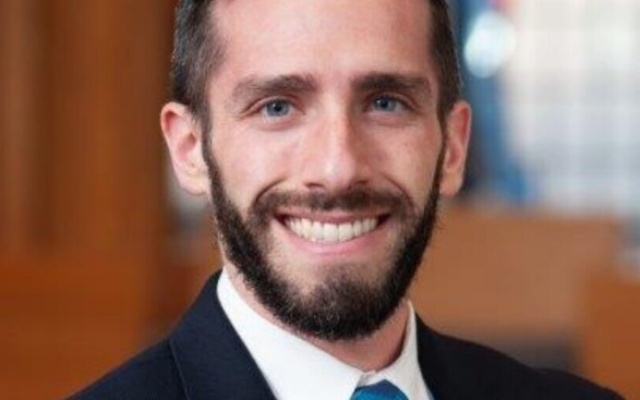
comments